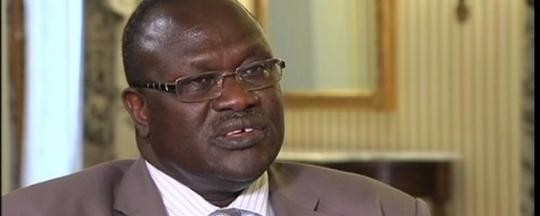The SPLM-in-Opposition leader Riek Machar has declined a proposal by the Joint Monitoring and Evaluation Commission (JMEC) that he return to Juba with an accompany delegation of 75 members on 12 April, instead proposing a date the following week.
JMEC, which is overseeing implementation of South Sudan’s peace deal, invited the first vice president designate to return to Juba on 12 April, and offered to facilitate the first meeting between Kiir and Machar on the same afternoon of his arrival.
Festus Mogae, former president of Botswana and chairman of JMEC, wanted the Transitional Government of National Unity to be formed within days of Machar’s arrival, starting already next week. Instead, Machar’s proposal means that the transitional government will not be formed until the following week at the earliest.
Nyarji Roman, the deputy spokesman in Machar’s office, confirmed the proposed 18 April return date in an email to Radio Tamazuj. “I would like to inform you that April 18th 2016 early morning the First Vice President of the Republic of South Sudan and the chairman and commander in chief of SPLA IO H.E Dr Riek Machar Teny-Dhurgon will land in Juba. The plane will departure from Gambila, Ethiopia in the early morning from the above date.”
The same proposed date was confirmed in other media reports, also citing SPLM-IO sources. James Dak, Machar’s spokesman, is quoted in Sudan Tribune as saying that JMEC’s initially proposed date of 12 April was “not workable,” without explaining why.
Arrangements for finalizing the transportation of a force of 1,370 SPLM-IO troops to Juba are already underway and the process is expected to be completed this week, SPLM-IO’s chief negotiator Taban Deng said earlier this week. That number of troops is the minimum that was agreed as a threshold for Machar’s return.
Riek Machar has been living mostly in Addis Ababa in Ethiopia and Nairobi in Kenya since his departure from South Sudan more than two years ago. He signed a peace deal with the government in August 2015.




